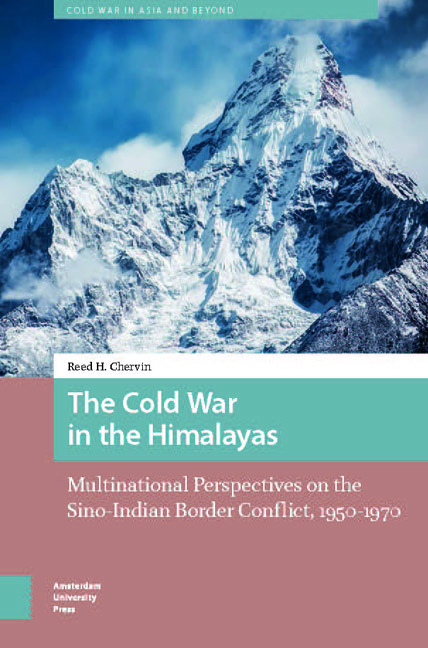 The Cold War in the Himalayas
The Cold War in the Himalayas 1 - The 1962 War and Domestic Reactions in China and India
Published online by Cambridge University Press: 16 April 2024
Summary
Abstract
Chapter 1 begins by outlining the 1962 Sino-Indian War and by assessing the claim that China coordinated the war with the Cuban Missile Crisis. I then discuss how India reacted to the war domestically through mass mobilization and the persecution of alleged fifth columnists such as Chinese and Indian Communists. The section that follows addresses how China reacted to the war by examining views from elites and ordinary people such as military leaders and urban residents.
Keywords: Cuban Missile Crisis, 1962 Sino-Indian War, fifth columnists, military leaders, urban residents
In the frigid morning of October 20, 1962, the People's Liberation Army launched an attack on Indian troops at the Himalayan border. The Chinese had forded the Namka Chu, a river in the eastern sector of the disputed frontier near the China-India-Bhutan trijunction, and then used mortars and artillery to strike Indian positions. Simultaneously in the western sector, the People's Liberation Army captured the Chip Chap and Galwan Valleys as well as Pangong Lake (see figure 1.1). The Western Command of the Indian army ordered soldiers not attacked on the first day to withdraw.
Successful tactics of the People's Liberation Army involved concentrating its forces and catching India by surprise. Furthermore, the Chinese attack on remote Indian posts incited a hasty reaction, which overstretched India's lines of communication and drew forces away from defending the longdisputed monastery town of Tawang. This town fell without a fight on October 24 (see figure 1.2). After these initial routs, the People's Liberation Army paused its advance. On October 24, Chinese Premier Zhou Enlai sent a note to Indian Prime Minister Jawaharlal Nehru seeking a peaceful resolution to the border conflict. He put forward a three-point proposal:
1) Both parties affirm that the Sino-Indian boundary question must be settled through negotiations. Pending a peaceful settlement, the Chinese Government hopes that the Indian Government agree that both parties respect the line of actual control between the two sides, and the armed forces of each side withdraw 20 kilometers from this line.
- Type
- Chapter
- Information
- The Cold War in the HimalayasMultinational Perspectives on the Sino-Indian Border Conflict, 1950-1970, pp. 33 - 70Publisher: Amsterdam University PressPrint publication year: 2024
